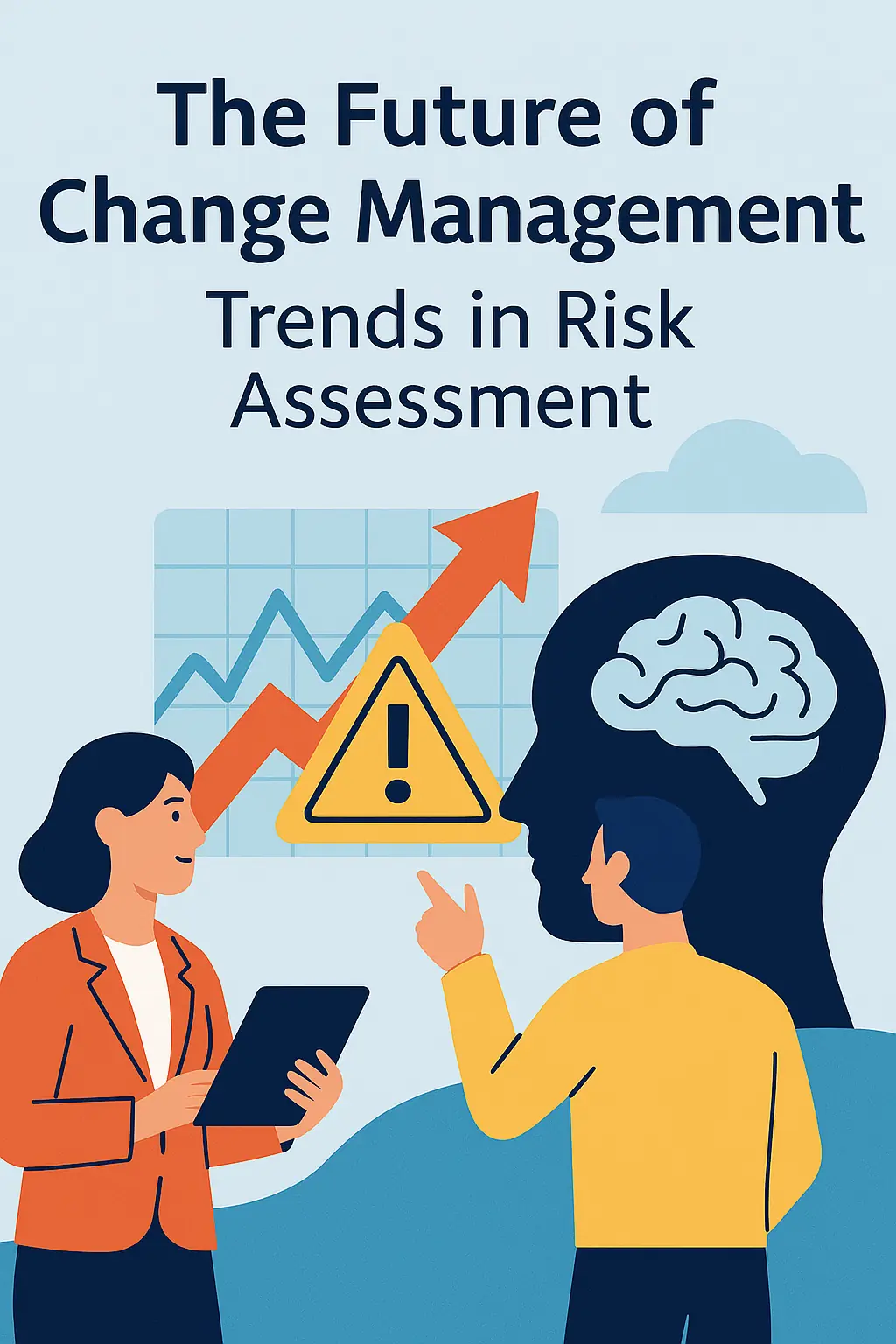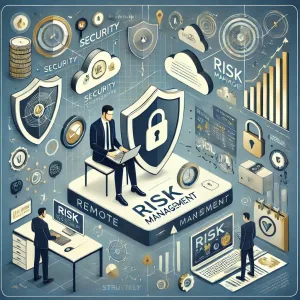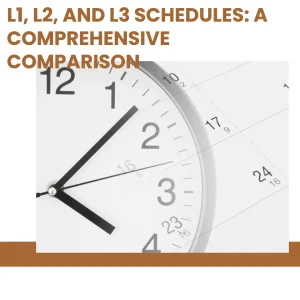Introduction
Change management is a critical discipline that focuses on preparing, supporting, and helping individuals, teams, and organizations in making organizational change. It is essential for ensuring that changes are implemented smoothly and effectively, minimizing resistance and maximizing engagement. As organizations face an increasingly dynamic environment, the importance of change management has never been more pronounced. Effective change management not only facilitates the transition but also enhances the likelihood of achieving desired outcomes, thereby contributing to overall project success.
At the heart of successful change initiatives lies risk assessment, a systematic process that identifies, evaluates, and prioritizes risks associated with changes. This practice is vital for anticipating potential challenges and mitigating adverse effects that could derail change efforts. By conducting thorough risk assessments, project managers can develop strategies to address uncertainties, ensuring that change initiatives are not only well-planned but also resilient against unforeseen obstacles.
This blog post aims to delve into the emerging trends in risk assessment for change management. As the landscape of project management evolves, so too do the methodologies and tools used for risk assessment. By analyzing these trends, project management consultants can gain insights into innovative practices that enhance their risk management strategies, ultimately leading to more successful change initiatives. The exploration of these trends will provide a comprehensive understanding of how risk assessment is adapting to meet the challenges of modern change management, equipping professionals with the knowledge to navigate this complex terrain effectively.
The Importance of Risk Assessment in Change Management
The landscape is constantly evolving, and with it, the need for effective change management practices. As organizations strive to adapt to new technologies, market demands, and operational challenges, the potential impacts of change can be profound. Understanding these impacts is crucial for ensuring that change initiatives are successful and sustainable.
Potential Impacts of Change on Organizations and Projects
Change can significantly affect various aspects of an organization, including:
- Operational Efficiency: Changes in processes or systems can disrupt workflows, leading to temporary declines in productivity.
- Employee Morale: Unmanaged change can create uncertainty and resistance among employees, affecting their engagement and performance.
- Financial Performance: Poorly executed change initiatives can result in wasted resources and financial losses, impacting the bottom line.
- Customer Satisfaction: Changes that are not well-communicated or implemented can lead to service disruptions, ultimately affecting customer trust and loyalty.
Given these potential impacts, it is essential for project management consultants to prioritize risk assessment as a fundamental component of change management.
How Risk Assessment Helps Identify, Analyze, and Mitigate Risks
Risk assessment serves as a proactive approach to managing the uncertainties associated with change. It involves several key steps:
- Identification of Risks: By systematically identifying potential risks, organizations can gain insights into what could go wrong during a change initiative. This includes both internal risks (e.g., employee resistance) and external risks (e.g., market fluctuations).
- Analysis of Risks: Once risks are identified, analyzing their likelihood and potential impact allows organizations to prioritize which risks need immediate attention. This analysis can involve qualitative and quantitative methods to assess the severity of each risk.
- Mitigation Strategies: Effective risk assessment leads to the development of strategies to mitigate identified risks. This may include training programs to address employee concerns, contingency plans for operational disruptions, or communication strategies to keep stakeholders informed.
By integrating risk assessment into change management practices, organizations can navigate the complexities of change more effectively, ensuring smoother transitions and better outcomes.
Emerging Trends in Risk Assessment for Change Management
Risk assessment practices are undergoing significant transformations, particularly in the context of change management. As organizations strive to adapt to rapid changes and uncertainties, several emerging trends are shaping how risk assessments are conducted. Here are some key trends that project management consultants should be aware of:
- Increased Use of Data Analytics and AI for Predictive Risk Assessment: The integration of artificial intelligence (AI) and data analytics is revolutionizing risk assessment methodologies. Organizations are leveraging these technologies to analyze vast amounts of data, enabling them to predict potential risks more accurately. This data-driven approach allows for proactive risk management, where potential issues can be identified and addressed before they escalate, enhancing overall project resilience [2][12].
- The Rise of Agile Methodologies: Agile methodologies are gaining traction in project management, influencing risk assessment processes significantly. Agile frameworks promote flexibility and iterative progress, which necessitates a more dynamic approach to risk assessment. This shift encourages teams to continuously evaluate risks throughout the project lifecycle, rather than relying on a one-time assessment at the project’s outset. As a result, risk management becomes an integral part of the agile process, allowing for quicker responses to emerging challenges [7][14].
- Growing Emphasis on Stakeholder Engagement and Communication: Effective risk assessment in change management increasingly relies on robust stakeholder engagement. Organizations are recognizing the importance of involving stakeholders in the risk assessment process to gain diverse perspectives and insights. This collaborative approach not only enhances the identification of potential risks but also fosters a culture of transparency and trust, which is crucial for successful change initiatives [3][12].
- Integration of Continuous Risk Assessment: The trend towards continuous risk assessment reflects a shift from traditional, static risk evaluation methods to a more fluid and ongoing process. This integration allows organizations to monitor risks in real-time, adapting their strategies as new information emerges. By embedding risk assessment into every phase of the change management lifecycle, organizations can ensure that they remain agile and responsive to both internal and external changes [4][12].
These trends highlight the need for project management consultants to adapt their risk assessment practices to align with the changing dynamics of change management. By embracing these emerging trends, consultants can better equip organizations to navigate the complexities of change, ultimately leading to more successful project outcomes.
Technological Advancements Influencing Risk Assessment
In change management, the integration of technology is revolutionizing risk assessment practices. As organizations strive to adapt to rapid changes, understanding the emerging trends in risk assessment is crucial for project management consultants. Here are some key points highlighting how technology is transforming these practices:
- Overview of Tools and Software: The landscape of risk assessment is increasingly dominated by advanced tools and software designed to streamline the process. Governance, Risk, and Compliance (GRC) platforms are becoming essential, allowing organizations to manage risks more effectively by providing a centralized framework for risk identification, analysis, and reporting. Additionally, risk maturity models and risk appetite statements are being utilized to establish clear guidelines and expectations for risk management, ensuring that organizations are prepared for potential challenges [2][4].
- Role of Machine Learning: Machine learning is playing a pivotal role in enhancing risk assessment by enabling the identification of patterns and predicting potential risks. By analyzing historical data, machine learning algorithms can uncover trends that may not be immediately apparent, allowing project managers to anticipate issues before they arise. This predictive capability not only improves the accuracy of risk assessments but also enhances decision-making processes, leading to more proactive risk management strategies [8][14].
- Examples of Successful Technology Integration: Numerous organizations have successfully integrated technology into their risk assessment processes, showcasing the benefits of this approach. For instance, companies leveraging AI tools have reported significant improvements in their ability to assess risks associated with change initiatives. These technologies facilitate real-time data analysis, enabling project teams to respond swiftly to emerging risks. Furthermore, the use of advanced project management software has streamlined communication and collaboration among team members, ensuring that risk assessments are comprehensive and up-to-date [3][6][8].
Challenges in Adopting New Risk Assessment Practices
Organizations are increasingly recognizing the importance of effective risk assessment in change management. However, several challenges hinder the adoption of new risk assessment practices. Here are some key obstacles that project management consultants should be aware of:
- Resistance to Change from Within Organizations: One of the most significant barriers to implementing new risk assessment practices is the inherent resistance to change within organizations. Many enterprises view risk assessment as a hindrance to daily operations rather than a critical component of strategic planning. This perception often leads to the postponement or outright rejection of risk evaluation processes, as teams prioritize routine tasks over what they perceive as non-essential activities [8][15].
- Limited Resources and Expertise in Advanced Risk Assessment Tools: The adoption of modern risk assessment methodologies often requires specialized tools and expertise that many organizations lack. This gap can result in inadequate risk management practices, as teams may not have access to the necessary resources or training to effectively utilize advanced risk assessment tools. Consequently, organizations may struggle to implement comprehensive risk evaluations that align with their change management initiatives [14][15].
- Balancing Thorough Risk Analysis with the Need for Timely Decision Making: In the fast-paced environment of project management, there is often a pressing need for timely decision-making. However, thorough risk analysis can be time-consuming, leading to a conflict between the desire for comprehensive evaluations and the urgency of making quick decisions. This challenge is exacerbated by the dynamic nature of the risk landscape, which requires organizations to adapt their assessment approaches continuously. As a result, many teams may opt for expedited assessments that overlook critical risks, ultimately jeopardizing the success of change initiatives [6][14].
By addressing these challenges, organizations can enhance their risk assessment practices, leading to more effective change management strategies. Project management consultants play a crucial role in guiding organizations through this transition, helping them to overcome resistance, build expertise, and find the right balance between thorough analysis and timely action.
Best Practices for Effective Risk Assessment in Change Management
Effective risk assessment is crucial for successful change management initiatives. As project management consultants, understanding and implementing best practices in risk assessment can significantly enhance your ability to navigate the complexities of change. Here are some actionable strategies that reflect emerging trends in risk assessment practices:
1. Develop a Comprehensive Risk Management Framework
Creating a robust risk management framework is foundational to effective change management. This framework should encompass:
- Clear Objectives: Define what the change initiative aims to achieve, which will guide the risk assessment process. Understanding the goals helps in identifying potential risks that could hinder progress [2].
- Risk Identification and Analysis: Utilize data-driven approaches to identify and analyze risks. This involves gathering quality data to inform your assessments and ensure that all potential risks are considered [6][7].
- Tailored Plans: Customize risk management plans based on the specific needs and risk tolerance levels of your organization. This personalization ensures that the strategies are relevant and effective [1].
2. Encourage Cross-Functional Collaboration
Holistic risk assessment requires input from various stakeholders across the organization. To foster collaboration:
- Stakeholder Engagement: Involve team members from different departments to gain diverse perspectives on potential risks. This can lead to a more comprehensive understanding of the risks associated with change initiatives [4].
- Regular Communication: Establish open lines of communication among stakeholders to facilitate the sharing of insights and concerns regarding risks. This collaborative approach can help in identifying risks that may not be apparent to a single department [4].
3. Implement Regular Reviews and Updates of Risk Assessment Strategies
The dynamic nature of projects necessitates ongoing evaluation of risk assessment strategies. To ensure your practices remain effective:
- Scheduled Reviews: Conduct regular reviews of your risk assessment framework to adapt to new challenges and changes in the project environment. This proactive approach allows for timely adjustments to risk management strategies [5].
- Feedback Mechanisms: Create channels for feedback from team members and stakeholders to continuously improve risk assessment practices. Incorporating lessons learned from past projects can enhance future risk management efforts [13].
By adopting these best practices, project management consultants can significantly improve their risk assessment capabilities in change management. This not only enhances the likelihood of project success but also positions consultants as valuable partners in navigating the complexities of organizational change.
Conclusion
In the rapidly evolving landscape of project management, the significance of adapting risk assessment strategies in change management cannot be overstated. As organizations face an increasingly complex environment characterized by technological advancements and shifting business models, the ability to effectively identify and manage risks is crucial for successful project outcomes. Emerging trends such as the integration of artificial intelligence (AI) and machine learning into risk assessment processes are reshaping how project managers approach change management, allowing for more proactive and data-driven decision-making [3][4][8].
Ongoing education and adaptation to these new trends are essential for project management consultants. Staying informed about the latest tools and methodologies, such as Governance, Risk, and Compliance (GRC) platforms and risk maturity models, will empower consultants to provide their clients with the most effective strategies for navigating change [8][10]. Furthermore, embracing innovative technologies like Virtual Reality (VR) and Augmented Reality (AR) can enhance the change experience for employees, making the transition smoother and more engaging [13].
As we look to the future, it is imperative for project management consultants to implement the discussed practices in their work. By doing so, they not only enhance their own capabilities but also contribute to the overall resilience and adaptability of the organizations they serve.
Find out more about Shaun Stoltz https://www.shaunstoltz.com/about/.
This post was written by an AI and reviewed/edited by a human.



